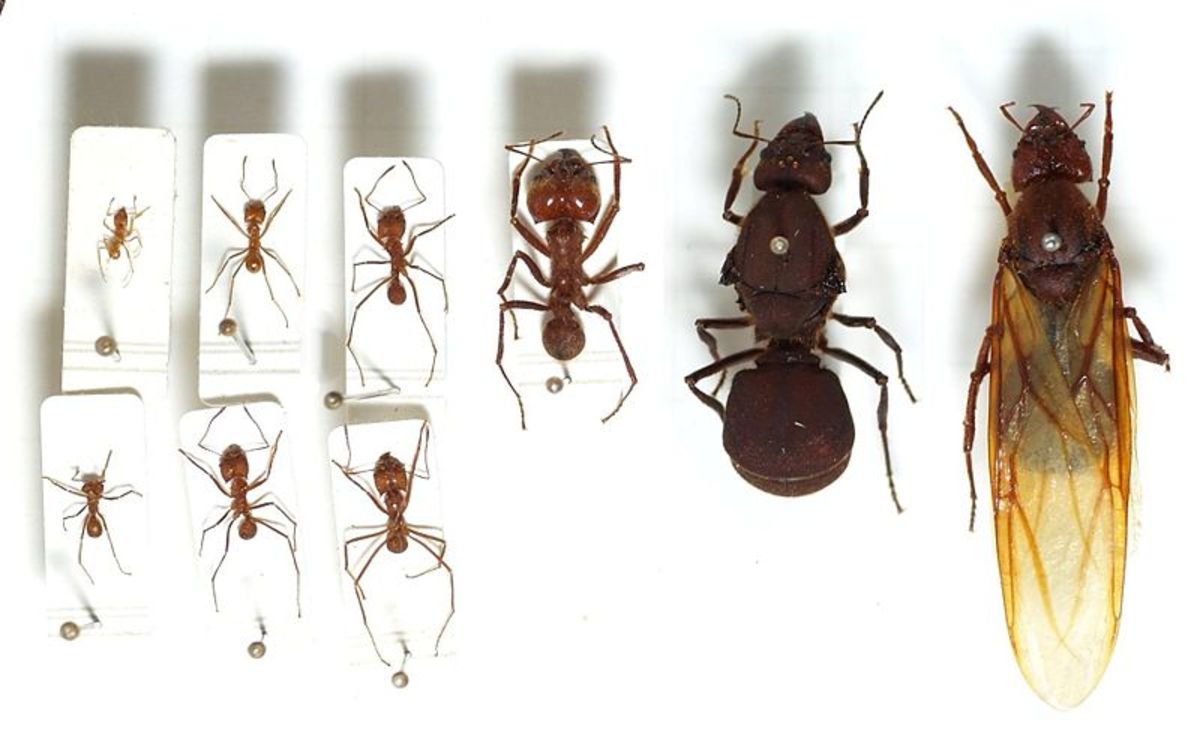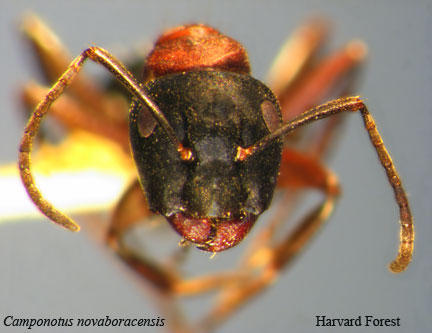The purpose of ants is crucial for soil aeration, fertilization, and ecological balance, serving as a vital food source in the ecosystem. Ants play an essential role in maintaining the biodiversity and overall health of the environment.
These tiny creatures diligently work to aerate the soil by turning it and allowing vital nutrients like oxygen and water to reach plant roots efficiently. Additionally, ants aid in the decomposition process by feeding on organic waste, insects, and dead animals, contributing to keeping the environment clean and sustainable.
Their presence is integral to the ecosystem’s functionality and plays a significant role in maintaining the delicate balance of nature.

Credit: www.facebook.com
The Role Of Ants In The Ecosystem
Ants play a crucial role in the ecosystem as they aid in soil aeration, fertilization, and ecological balance. They serve as a vital food source for many creatures, and their extinction would lead to catastrophic damage to the ecosystem. Additionally, ants act as decomposers, helping to keep the environment clean.
Importance Of Ants In The Environment
Ants play a crucial role in the ecosystem, contributing to various ecological processes that maintain the balance of nature. Their importance extends beyond being pesky pests that invade our homes or picnic areas. Let’s explore the significance of ants in the environment.Ants As Essential Food Sources
Ants serve as essential food sources for numerous organisms in the ecosystem. Their presence ensures a continuous supply of nourishment for insectivorous animals, including birds, reptiles, and mammals. Additionally, ants contribute to the decomposition of organic matter, making them important detritivores in the food web.Soil Aeration And Nutrient Recycling
Ants actively contribute to soil aeration, as they tunnel underneath the ground. These underground tunnels improve soil structure by facilitating the flow of air, water, and nutrients. Ants also aid in nutrient recycling by consuming organic matter and excreting waste, thereby enriching the soil with essential nutrients.Pollination And Seed Dispersal
Some ant species have coevolved with flowering plants, forming mutualistic relationships. These ants assist in pollination by carrying pollen grains on their bodies as they move from one flower to another. They also play a vital role in seed dispersal, as they transport seeds to new locations, aiding in plant colonization and promoting biodiversity.Biological Pest Control
Certain ant species act as natural biological pest control agents, preying on agricultural pests such as aphids, caterpillars, and termites. They help regulate pest populations, minimizing the need for harmful chemical pesticides and promoting sustainable agriculture.Conclusion
As we can see, ants are not just insects that crawl around our homes; they have a significant role in maintaining the ecological balance. From being essential food sources to facilitating soil aeration and nutrient recycling, ants contribute in numerous ways to the functioning of the ecosystem. Appreciating their importance and preserving their habitats is crucial for the overall health and sustainability of our environment.Ecological Functions Of Ants
Ants serve a vital purpose in the ecosystem, playing a crucial role in soil aeration, fertilization, and maintaining ecological balance. They also serve as a food source for other creatures, and the extinction of ants would have catastrophic effects on our environment.
Ants perform crucial roles in maintaining the ecological balance of our planet. Ants significantly contribute to soil aeration and fertilization, supporting plant growth and nutrient circulation.Aeration And Fertilization Of Soil
Ants dig tunnels in the soil, enhancing oxygen flow and water drainage, aiding root growth.Decomposition And Waste Management
Ants aid in the decomposition of organic matter, recycling nutrients back into the soil.Ants play a vital role in maintaining the ecological balance by aiding in soil aeration, fertilization, and waste management. They contribute to plant growth and nutrient circulation. Ants perform tasks that are beneficial to the ecosystem, making them essential creatures in nature.Ants’ Impact On Other Species
Ants play a crucial role in ecosystems, contributing to soil aeration, fertilization, and ecological balance. They are vital food sources for various species, and their extinction could lead to significant ecosystem disruptions. Each ant has a specific purpose, with tasks such as foraging for food essential for the colony’s survival.
Ants As Termites’ Natural Predators
Ants serve as natural predators to termites, preventing infestations that can damage structures and ecosystems.
Role Of Ants In Plant Seed Transportation
Ants play a crucial role in transporting plant seeds, aiding in the distribution and growth of various plant species.
Ants’ ecological significance cannot be overstated. They contribute to soil aeration, fertilization, and maintaining ecological balance.
Furthermore, ants are vital food sources for numerous other creatures, highlighting their integral role in the food web and ecosystem stability.
The extinction of ants would disrupt ecosystem dynamics, emphasizing the importance of their presence in maintaining biodiversity.

Credit: owlcation.com
The Purpose Of Ants In A Colony
Ants play a crucial role in maintaining the balance of our ecosystem. These tiny creatures are highly organized and work together as a colony to achieve common goals. By specializing in different tasks, individual ants ensure the survival and success of the entire colony. Let’s take a closer look at the specialized roles of individual ants and the collective goal of colony survival.
The Specialized Roles Of Individual Ants
Within an ant colony, each individual has a specific task to perform. This division of labor is essential for the smooth functioning of the colony and ensures that all necessary activities are carried out efficiently. Here are some of the specialized roles undertaken by individual ants:
- Queen Ant: The queen is responsible for reproduction and ensuring the continuity of the colony. She lays eggs and produces pheromones for communication.
- Worker Ants: The majority of ants in a colony are worker ants. They perform various tasks such as foraging for food, tending to the eggs and larvae, building and maintaining the nest, and defending the colony.
- Soldier Ants: These ants are larger and have strong mandibles that they use to defend the colony against predators and intruders.
- Scout Ants: Scout ants are responsible for exploring new territory, searching for food sources, and marking paths to guide other ants.
This division of labor allows ants to efficiently manage their tasks, ensuring the survival and growth of the colony.
The Collective Goal Of Colony Survival
While individual ants have specialized roles, their ultimate goal is the survival and success of the entire colony. Ants work together in a highly coordinated manner to achieve common objectives. Here are some key aspects of the collective goal of colony survival:
- Food Collection: One of the primary objectives of an ant colony is to collect sufficient food resources. Worker ants tirelessly forage for food, bringing it back to the colony to sustain the entire population.
- Brood Care: Ant colonies prioritize the care and protection of their eggs, larvae, and pupae. Worker ants diligently tend to the brood, ensuring their development and survival.
- Nest Maintenance: Maintaining the nest is crucial for colony survival. Ants collectively construct and maintain the nest, ensuring a safe and suitable environment for the entire colony.
- Defense: Ants are highly territorial and vigorously defend their colony against predators and rival colonies. Soldier ants play a crucial role in protecting the colony, while workers also participate in defense when necessary.
- Communication: Ants communicate with each other through pheromones and body language. This effective means of communication helps in coordinating tasks, alerting others to threats, and maintaining colony cohesion.
The collective efforts and collaboration of individual ants are essential for the survival and prosperity of the entire ant colony. Each ant’s specialized role contributes to the overall success and stability of the colony.
Potential Consequences Of Ant Extinction
Ants play a crucial role in maintaining the balance of the ecosystem and their extinction could have significant ramifications on various aspects of the environment. Here are some of the potential consequences of ant extinction:
Ecological Imbalance And Damage
The absence of ants would disrupt the delicate ecological balance, leading to an overabundance of certain species and a decline in others. These tiny creatures contribute to the decomposition of organic matter and soil aeration, which are vital for the health of the ecosystem. Additionally, ants help in controlling pest populations, and their extinction could result in the unchecked growth of these pests, leading to agricultural and environmental damage.
Impact On Other Species And Habitats
Ants are a crucial part of various food chains and play a significant role in supporting the existence of other species. Their extinction would not only impact the organisms that directly rely on ants as a source of food but could also trigger a ripple effect on the entire food web, ultimately affecting the survival of countless other species. Ants also contribute to seed dispersal and soil nutrient cycling, which are vital for the health and sustainability of ecosystems.

Credit: harvardforest.fas.harvard.edu
Frequently Asked Questions On What Is The Purpose Of Ant
Can We Live Without Ants?
Ants are crucial for soil aeration, fertilization, and ecological balance. They are essential as a food source and their extinction would harm the ecosystem.
What Are The Goals Of An Ant?
The goals of ants are to find food for the colony and contribute to the soil aeration, fertilization, and ecological balance. They also serve as a vital food source for other creatures, and their extinction would have catastrophic effects on our ecosystem.
What Is The Purpose Of House Ants?
House ants serve several important ecological roles, such as controlling pest populations, aiding in decomposition, and contributing to soil aeration and fertility. They also act as a vital food source for other creatures, playing a significant role in maintaining the balance of the ecosystem.
Why Were Ants Created?
Ants were created to play a crucial role in the ecosystem. They aid in soil aeration, fertilization, and maintaining ecological balance. Additionally, they serve as a vital food source for other creatures. The extinction of ants would have catastrophic effects on the environment.
Conclusion
Ants play a crucial role in our ecosystem. They contribute to soil aeration, fertilization, and ecological balance. Additionally, ants serve as a vital food source for other organisms. Without ants, our environment would suffer catastrophic damage. Therefore, it is essential to recognize and appreciate the purpose and significance of ants in maintaining a healthy and thriving planet.

I’m MD Tanvir, and I bring years of expertise gained from working closely with pest control companies to the forefront. My journey in the industry has inspired me to launch Bug Battler, a platform aimed at equipping people with the know-how to combat pests autonomously. Through Bug Battler, I aim to empower individuals with practical insights to tackle pest infestations effectively.
